One more blog of convincing you that having skills is more important than just having a degree. And to compete on the basis of skills and stand out, you need to incorporate continuous learning. Especially when you’re in college and even after you graduate.
Back in the day, getting a degree was seen as the big ticket to success. But things have changed. Nowadays, industries change fast, and jobs can look very different from year to year. That’s why being able to learn new things constantly is so crucial.
It’s not just about what you know right now; it’s about your ability to keep learning and improving as you go along. In this blog, we’re going to talk about continuous learning and why it’s so important for your success.
Let’s start with how all other blogs start:
What Is Continuous Learning?
Continuous learning isn’t just attending classes and earning degrees. It’s a lifelong commitment to expanding knowledge and skills, regardless of formal education. Instead of being confined to a classroom or a degree program, it’s about upskilling, formally or informally.
There is no set definition of continuous learning. It can be structured, unstructured, informal, formal, or anything. The only thing that matters is – constant learning and upskilling. What sets it apart from traditional learning is its flexibility, but we will talk about it in the next section.
Continuous learning doesn’t have to be a degree or certification program. You can practice it through online courses, read books, listen to podcasts, or even work on personal projects—all contributing to your development.
Moreover, continuous learning hones your adaptability. As you keep learning, you become better equipped to handle unexpected changes in your career or industry.
Here’s a very relevant example –
I suppose you’re a college student preparing to get into a developer job. You got the degree, skills, and projects. But are you sure that is enough? Don’t you think it is the time of AI and you need to learn about it to get better opportunities? Yes, you do. This is where a student practicing continuous learning will beat the student who does not.
Difference Between Continuous Learning And Traditional Learning
I suppose you already know what traditional learning stands for. If you don’t, it is what we do at schools and colleges. Now, here’s the difference:
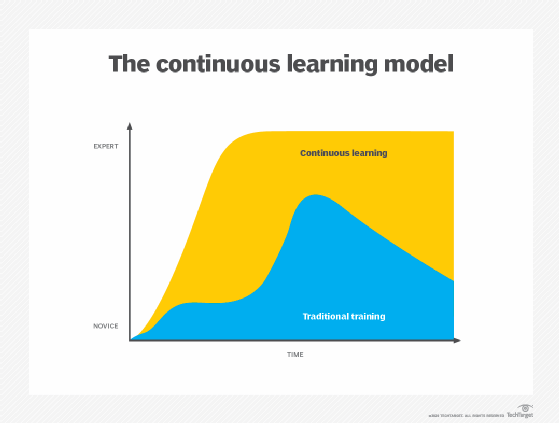
Flexibility:
- Traditional learning follows a structured curriculum with set schedules for classes, assignments, and exams.
- In contrast, continuous learning offers flexibility, allowing you to choose what, when, and how you learn. Whether through online courses, workshops, or self-study, you can tailor your experiences to fit your preferences and pace.
Self-Direction:
- In traditional education, instructors guide the learning process. You get teachers and professors to dictate the syllabus, get you the notes, etc.
- However, continuous learning demands you to take charge of your development yourself by actively seeking resources, setting goals, and assessing progress independently. This autonomy creates a deeper sense of ownership and motivation.
Adaptability:
- Traditional learning focuses on established knowledge and practices but may struggle to keep up with rapid changes in various fields.
- Continuous learning emphasizes adaptability, encouraging you to stay updated with the latest developments in your chosen areas. By remaining open to new ideas, you are better prepared to handle evolving demands and seize opportunities for growth.
Principles of Continuous Learning
Now, if you are to practice continuous learning and make it a habit for a lifetime, you need to know the principles if works upon:
Lifelong Learning Mindset:
At the core of continuous learning is a mindset of lifelong curiosity and growth. It’s about seeing every experience as an opportunity to learn and improve. And you need to have this mindset.
Instead of viewing education as a one-time event, you need to make it a part of your daily life. This mindset encourages resilience and adaptability, and trust me, you can’t excel in today’s world without these qualities.
Self-Directed Learning:
Continuous learners take initiative in their learning journey. And if you’re using the internet to learn new skills or polish the old ones, you already a continuous learner.
By taking ownership of your learning, you can customize the education process to suit your unique needs and preferences. This self-directed approach builds independence and empowers you to take control of your personal and professional development.
Feedback and Reflection:
Continuous learning involves more than just acquiring knowledge; it also requires reflection and feedback. Regularly evaluating progress and soliciting input from peers, mentors, and instructors can help you identify areas for improvement and refine your skills.
By including feedback in your learning process and engaging in self-reflection, you can continually enhance your abilities and adapt to any change in the industry requirements.
What Is The Significance Of Continuous Learning In Your Chosen Career
In today’s competitive job market, employers value candidates who are truly skilled and demonstrate a commitment to ongoing development. The time of fancy degrees and traditional resume projects is gone.
Here’s why continuous learning is crucial for your chosen career path:
- Stay Relevant: Industries are constantly evolving due to advancements in technology, changes in market trends, and shifts in consumer preferences. Continuous learning ensures that you stay up-to-date with the latest developments in your field, making you a valuable asset to employers.
- Enhance Skills: As you progress in your career, you’ll encounter new challenges and responsibilities. Continuous learning provides opportunities to acquire new skills and deepen existing ones, allowing you to excel in your role and take on leadership positions.
- Adapt to Change: The business world is dynamic, with unexpected disruptions and transformations occurring regularly. If you practice continuous learning, you are better equipped to adapt to these changes. Whether it’s the introduction of new regulations, the adoption of innovative technologies, or shifts in industry practices.
- Increase Job Satisfaction: Continuous learning also builds a sense of fulfillment and growth in your career. By constantly challenging yourself and expanding your knowledge, you’ll feel more engaged and motivated in your work, leading to greater job satisfaction. Isn’t that good?
- Advance Your Career: Employers are more likely to promote employees who demonstrate a commitment to professional development. By investing in continuous learning, you’ll position yourself as a proactive and ambitious professional, opening doors to new opportunities for advancement and career progression.
In essence, continuous learning is not just a means to improve your skills; it’s a strategic time and effort investment that reflects returns in your skill, knowledge, and career.
How to Build a Continuous Learning Strategy?
Now that we understand the importance of continuous learning in your career let’s explore how you can develop a strategy to incorporate it into your daily life:
- Set Clear Goals: Start by defining your learning objectives. What skills do you want to develop? What knowledge do you want to acquire? Setting clear goals will help you stay focused and motivated on your learning journey.
- Utilize Resources: Take advantage of the plethora of resources available on the internet. Online platforms like YouTube, Udemy, X, etc. offer a wide range of courses, playlists, and personalities to learn from. Additionally, you could also join professional organizations, attend workshops, or participate in webinars to expand your network and access valuable learning opportunities.
- Manage Your Time: Balancing daily learning with other responsibilities can be challenging. Do you know how to manage time? Well, you need to. Create a schedule that allocates dedicated time for learning each day or week. Prioritize tasks and eliminate distractions to make the most of your study sessions.
- Stay Consistent: Consistency is key to successful continuous learning. Make learning a habit by incorporating it into your daily routine. Whether it’s reading a few pages of a book before bed or dedicating Saturday mornings to online courses, find a schedule that works for you and stick to it.
- Seek Feedback: Don’t be afraid to seek feedback from peers, mentors, or instructors. Constructive criticism can help identify areas for improvement and guide your learning journey. Additionally, take time to reflect on your progress and celebrate your achievements along the way.
Conclusion
In short, continuous learning is super important for growing personally and professionally. You need to learn and upskill everyday, you got no choice. But I agree, it isn’t always fun.
If you want to make learning fun, join a group of people who are just like you. Check out the FuelEd community! It’s a cool group of misfit Gen Zs who are all about hustling and making it big.
FAQs
What is an example of continual learning?
Regularly attending workshops or seminars to update skills and knowledge in a particular field.
What is a continuous learning model?
A continuous learning model is a structured approach that emphasizes ongoing skill development and knowledge acquisition over time, often incorporating feedback loops and adaptive strategies.
What is a continuous learning culture?
A continuous learning culture is an organizational environment that values and promotes lifelong learning, where employees are encouraged to seek out new knowledge, skills, and experiences to enhance their personal and professional growth.
What is the difference between continuous and continual learning?
Continuous learning implies a constant and uninterrupted process of acquiring knowledge and skills, whereas continual learning suggests a repeated and ongoing effort to maintain and improve existing abilities over time.
Why is learning continuous?
Learning is continuous because the world is constantly evolving, requiring individuals to adapt and acquire new skills and knowledge to stay relevant and effective in their personal and professional lives.





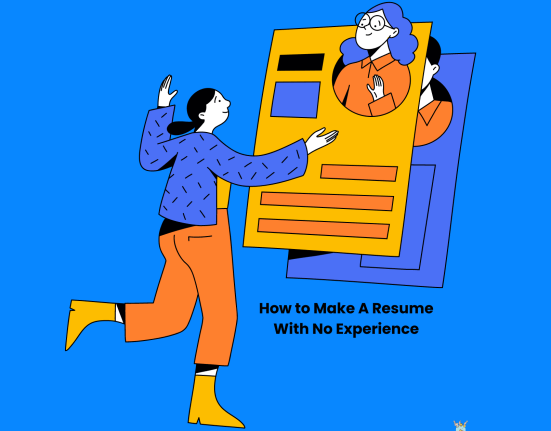
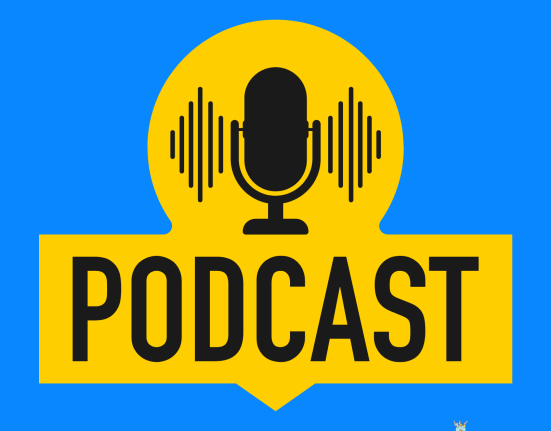

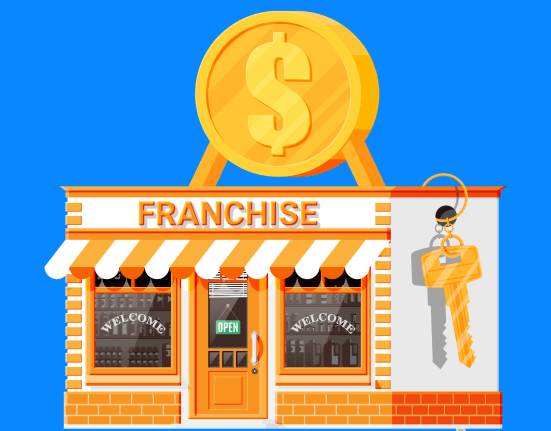

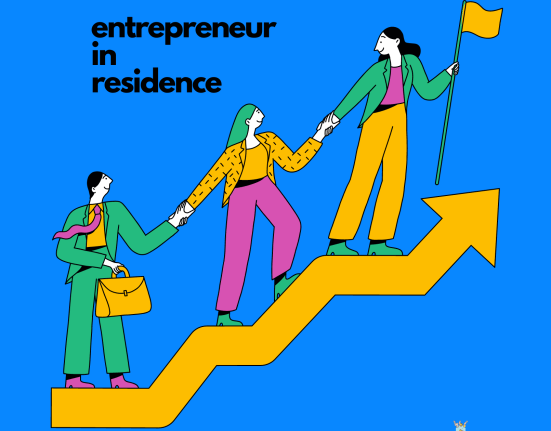
Leave feedback about this